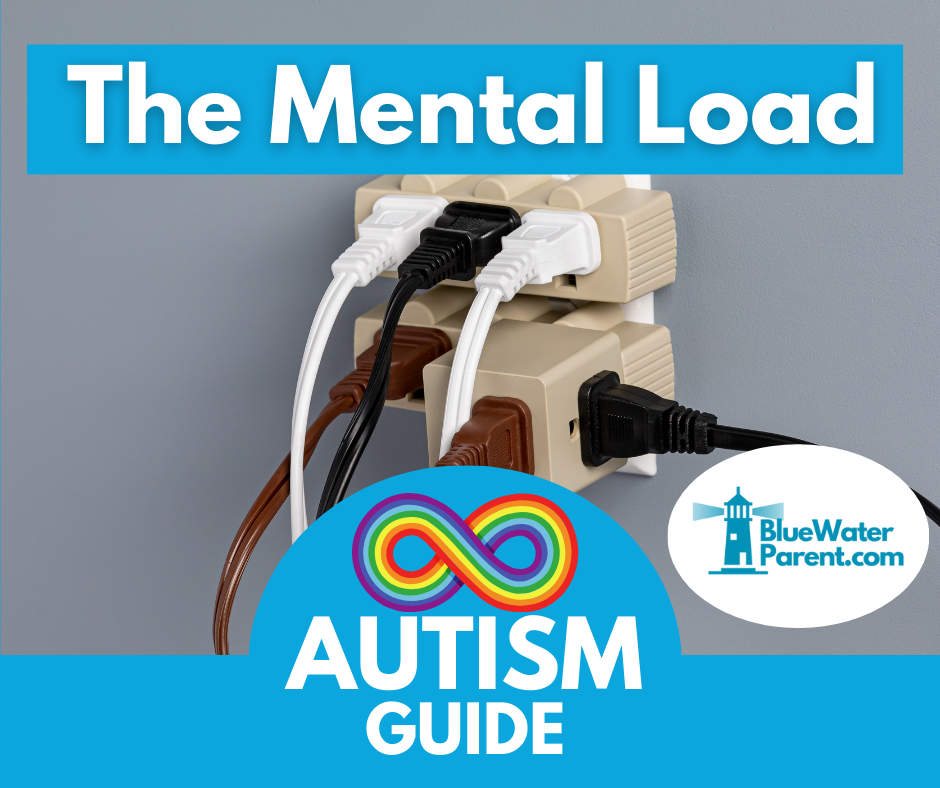Parenting blogger Jackie Davidson reflects on the mental load that parents carry and how that can be a heavier load for parents of children with special needs.
If you are a parent, then you are familiar with all of the invisible things you think about every day. From the nutrition of your children to the size of underwear they are in; there is a running list of things to remember every second of the day. Most people know this as the parental mental load and it is exhausting.
Larger Load for Special Needs Parents
While all parents deal with this phenomenon, those parents with children with special needs are on a whole different playing field of mental load. I am a parent to both neurodivergent and neurotypical children and I can confirm a large difference. I cannot speak for all disabilities, but for the caregivers of those with autism, the load is immense.
I would like to first acknowledge that while stress is high for us as parents, guardians, or caregivers, we are well aware that it also heavy for the child or autistic person. This world is not built for everyone and for autistic people to function in society in any capacity the mental load is usually overflowing. It’s invisible though, like having to remember to say hi when someone greets them, answer when a question is asked, or even how to eat a meal with proper social standards. Autistic individuals are in a constant state of having to remember things that come so naturally to some.
Preplanning Aplenty
With that said the caregivers of autistic individuals have a much higher mental load than those of neurotypical peers. When we take our children places we have to remember more than the average parent. For example, we can only go to a certain store because it meets the needs of our children. While walking through a particular store we are always on the lookout for the thing that might upset our child or for something that they might obsess over. We don’t just run to the store quickly, we plan an excursion with sensory tools and pre-planning of how we will tackle the challenge.
Stress is Higher Overall
The stress that accompanies us is much higher as well. I say this as a mother to both neurodivergent children and neurotypical, I don’t worry about how others perceive my children, but I see it and I internalize it. We are often given unsolicited advice from people who cannot relate and we are expected to remember it while we also are remembering advice from teachers, therapists, and doctors.
Public schools are doing their best, but they are not built for our kids so their education is created with a document called an IEP, or Individual Education Plan. We get double (if not more) the amount of phone calls from school for behavior. When I say we dread these calls, I mean we have a sinking feeling every time the school’s name pops up on our phone. We have meetings with schools often and everything is a legal document, which comes along with more hoops to jump through.
Financial Load
There are medical bills that surpass most neurotypical peers because our kids aren’t always able to communicate what is happening to their bodies so we default by taking them to the doctors “just in case” which comes with its own set of stressors. There are medication costs that might come along with autism and aren’t always covered by insurance. There are therapy bills and weekly therapy appointments. If there are multiple children, you then have to find care for them while you take your other child to therapy. We often call and fight with insurance to cover our children’s needs resulting in years of our life left on hold with awful music that gets stuck in our heads for the day.
Relationship Load
There is a strain on our relationships and marriage simply because we have a disabled child. There are so many more steps to taking our children to family functions. Our kids often have sensory needs surrounding foods and we have a list of safe foods that we always have to have on hand. There are constant new struggles that we are always brainstorming to solve.
All of This
All of this, and then some is what we carry on our shoulders day to day. All of this is on top of the usual mental load of cooking for your family, shopping, cleaning, working, and after-school activities for our kids. All of this and we conquer it daily on low levels of sleep because neurodivergence often affects sleep patterns.
All of this, and we still put our children first and can recognize that it’s still harder for the kids. All of this and we still push forward and fight for them.
Empathy
Now, we just hope and pray everyone can start to think this way before they are upset that the autistic child is loud at the movie theater, throws themselves on the floor of the grocery store, or has a hard day in their child’s classroom.
Story by Jackie Davidson for BlueWaterParent.com
All content of BlueWaterParent.com is for informational and entertainment purposes only and does not constitute medical advice.

